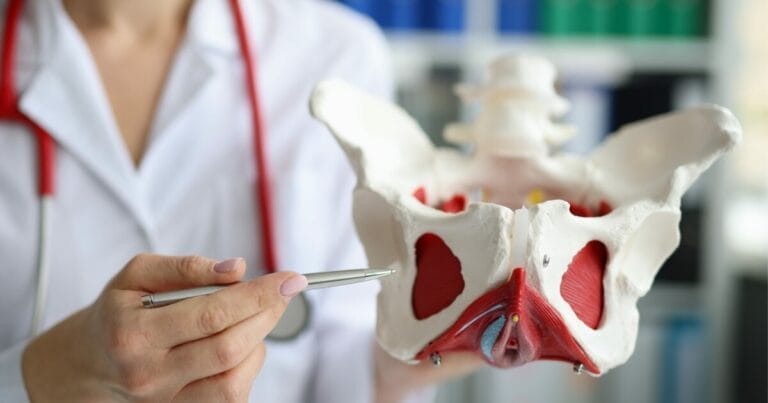Breaking the Silence: Empowering Strategies to Overcome Constipation
Constipation – a condition that affects millions of people worldwide, yet remains shrouded in silence and feelings of embarrassment. If you have ever experienced the discomfort and frustration associated with constipation, you know just how challenging it can be to find effective strategies to overcome this condition. Fortunately, there are empowering strategies available to help…
Constipation – a condition that affects millions of people worldwide, yet remains shrouded in silence and feelings of embarrassment. If you have ever experienced the discomfort and frustration associated with constipation, you know just how challenging it can be to find effective strategies to overcome this condition. Fortunately, there are empowering strategies available to help break the silence surrounding constipation and provide relief for those who suffer from its grasp. In this article, we will explore these strategies with empathy and compassion, promising a renewed sense of hope for anyone seeking freedom from the clutches of constipation.
Understanding Constipation: A Closer Look at the Condition
Constipation is a common digestive issue that affects many individuals. It occurs when bowel movements become difficult or infrequent, leading to discomfort and bloating. While occasional constipation is normal, chronic constipation can be a persistent obstacle in one’s daily life.
There are several factors that can contribute to constipation. One of the main causes is a lack of fiber in one’s diet, which helps promote healthy digestion and regular bowel movements. Dehydration can also play a role, as it makes stools hard and difficult to pass. Additionally, certain medications like painkillers and some antidepressants can slow down the movement of the digestive system.
If left untreated, constipation can lead to more serious health issues such as hemorrhoids or anal fissures. That’s why it’s important to address the condition with effective strategies and lifestyle changes to improve bowel regularity and overall well-being.
To overcome constipation effectively:
- Increase your fiber intake by incorporating more fruits, vegetables, and whole grains into your diet.
- Stay hydrated by drinking plenty of water throughout the day.
- Engage in regular physical activity such as walking or jogging to stimulate bowel movements.
- Avoid consuming excessive amounts of caffeine or alcohol as they can dehydrate your body.
- Relieve stress through relaxation techniques like deep breathing exercises or yoga.
- Consider using over-the-counter laxatives only on a short-term basis under medical guidance.
Remember, understanding constipation is crucial for finding ways to manage it successfully. By implementing these empowering strategies into your daily routine you will be on track towards better gastrointestinal health!
Identifying the Causes: Uncovering the Triggers of Constipation
Diet
Diet plays a significant role in triggering constipation. Not consuming enough fiber-rich foods, such as fruits, vegetables, and whole grains, can strangle regular bowel movements. Additionally, excessive intake of processed foods that are low in nutrients and high in unhealthy fats may contribute to constipation.
Lack of Physical Activity
Living a sedentary lifestyle can lead to constipation. Regular physical activity helps stimulate the muscles in the intestines and promotes healthy digestion. Without proper movement, waste material may move slower through the digestive tract, increasing the likelihood of constipation.
Dehydration
Insufficient fluid intake is another common cause of constipation. Staying hydrated plays a vital role in maintaining soft stools and facilitating smooth bowel movements. When there isn’t enough water in your system, your body will draw moisture from stools, resulting in harder stool consistency that becomes difficult to pass.
Medications
Certain medications can have an adverse effect on bowel habits by slowing down or disrupting normal digestion processes. Common culprits include painkillers like opioids or antacids containing aluminum or calcium compounds. If experiencing recurrent constipation while taking medication(s), it’s essential to consult with a healthcare professional for guidance.
Overall gut health can be influenced by various factors such as diet choices, lack of physical activity, dehydration, and certain medications used regularly which might slow down normal digestive functions leading to what we call “constipation.” It’s often important – especially when dealing with recurring instances – to understand these triggers so you can make positive changes toward preventing future bouts.
Lifestyle Changes: Small Steps Towards Regularity
Incorporate fiber-rich foods into your diet
- Choose whole grains, fruits, vegetables, and legumes to increase your daily fiber intake.
- Start by gradually adding these foods to your meals to avoid any digestive discomfort.
Stay hydrated throughout the day
- Drinking enough water helps soften stool and aids in its smooth passage through the digestive tract.
- Aim for at least 8 glasses of water per day and consider increasing your intake during hot weather or physical activity.
Establish a regular exercise routine
- Engaging in physical activity stimulates bowel movements and promotes healthy digestion.
- Try incorporating activities like walking, jogging, or yoga into your daily schedule.
Remember that making lifestyle changes takes time and patience. Be consistent with these small steps towards regularity to help overcome constipation.
The Power of Diet: Nourishing Solutions for Constipation Relief
When it comes to finding relief from constipation, the food we eat plays a crucial role. Incorporating certain dietary changes can have a significant impact on our digestive system and promote regular bowel movements. Here are some nourishing solutions to consider:
- Increase Your Fiber Intake: Consuming fiber-rich foods such as fruits, vegetables, whole grains, and legumes can help soften your stools and ease constipation. Aim for at least 25-30 grams of fiber per day.
- Stay Hydrated: Drinking an adequate amount of water throughout the day is essential for maintaining healthy digestion. It helps in softening the stool and making it easier to pass.
- Probiotics Are Your Friends: Including probiotic-rich foods like yogurt or taking supplements can restore beneficial bacteria in your gut and improve overall intestinal health.
- Avoid Trigger Foods: Certain foods like processed snacks, fried items, dairy products, and high-fat meals can contribute to constipation symptoms by slowing down digestion. Limiting their intake may provide relief.
Remember that everyone’s body is unique, so it’s important to listen to your own needs and make adjustments accordingly when trying these dietary strategies for constipation relief.
Exercise and Movement: Getting Your Body Back on Track
Regular exercise is a vital component in overcoming constipation. Engaging in physical activity helps stimulate the muscles of the digestive system, encouraging regular bowel movements. Here are some tips to incorporate exercise into your routine:
- Stay Active: Aim for at least 30 minutes of moderate-intensity aerobic activity, such as brisk walking or cycling, five days a week. Additionally, consider incorporating strength-building exercises like weightlifting or yoga twice a week.
- Walking: Start with short walks and gradually increase the distance and pace over time. Walking not only aids digestion but also relieves stress that can contribute to gastrointestinal issues.
- Abdominal Exercises: Strengthening your abdominal muscles can improve overall muscle tone and promote healthy bowel function. Try simple exercises such as sit-ups or planks to engage these muscles.
Other Helpful Tips:
- Stay hydrated by drinking plenty of water throughout the day.
- Avoid sitting or lying down immediately after meals; instead, take a short walk.
- Make movement part of your daily activities – use stairs instead of elevators whenever possible. By making exercise and movement a priority in your life, you’ll be well on your way to getting your body back on track when it comes to overcoming constipation!
Natural Remedies: Harnessing the Healing Properties of Nature
Dietary Changes
Changing your diet is one of the most effective natural remedies for overcoming constipation. Increase your fiber intake by consuming more fruits, vegetables, whole grains, and legumes. These foods add bulk to your stool and promote regular bowel movements. Additionally, staying hydrated by drinking plenty of water helps soften stools, making them easier to pass.
Herbal Teas
Herbal teas can provide relief from constipation as well. Try sipping on peppermint or ginger tea after meals to stimulate digestion and alleviate symptoms. Chamomile tea has calming properties that can relax intestinal muscles and ease constipation discomfort.
Exercise Regularly
Regular exercise plays a crucial role in maintaining healthy bowel movements. Physical activity stimulates intestinal muscles, helping waste move through the digestive system more efficiently. Aim for at least 30 minutes of moderate aerobic exercise daily, such as brisk walking or cycling.
By incorporating these natural remedies into your lifestyle, you can empower yourself with holistic approaches to overcome constipation without relying solely on medication or medical interventions. Remember to consult with a healthcare professional before implementing any significant changes in your diet or exercise routine.
Over-the-Counter Options: Exploring Medications for Constipation
Exploring Over-the-Counter Options
When it comes to finding relief from constipation, over-the-counter medications can be a helpful resource. These options are easily accessible and offer quick relief for those struggling with bowel movements.
Fiber Supplements: A Natural Choice
One effective over-the-counter option is fiber supplements. These supplements work by adding bulk to the stool, making it easier to pass through the digestive system. They come in various forms such as powders, capsules, or chewable tablets, allowing you to choose the most convenient method for your needs.
Stool Softeners: Gentle Solutions
Stool softeners are another great choice for addressing constipation. These medications help by drawing water into the stools, making them softer and easier to pass. They provide gentle relief without causing dependency or disrupting your body’s natural processes.
Remember, before starting any new medication regimen or if symptoms persist despite trying over-the-counter solutions; consult a healthcare professional for personalized advice and appropriate treatment options.
Seeking Professional Help: When to Consult a Healthcare Provider
When to Consult a Healthcare Provider
If constipation persists for more than two weeks despite trying different strategies, it may be time to seek professional help.
Having difficulty passing stools could indicate an underlying medical condition that requires further evaluation by a healthcare provider.
Consulting a healthcare provider is particularly important if the following red flags are present:
- Severe abdominal pain or bloating
- Blood in the stool
- Unintentional weight loss
- Changes in bowel habits that last longer than four weeks
Remember, seeking professional help can provide valuable guidance and support in diagnosing and treating chronic constipation. Don’t hesitate to reach out to your healthcare provider for assistance.







